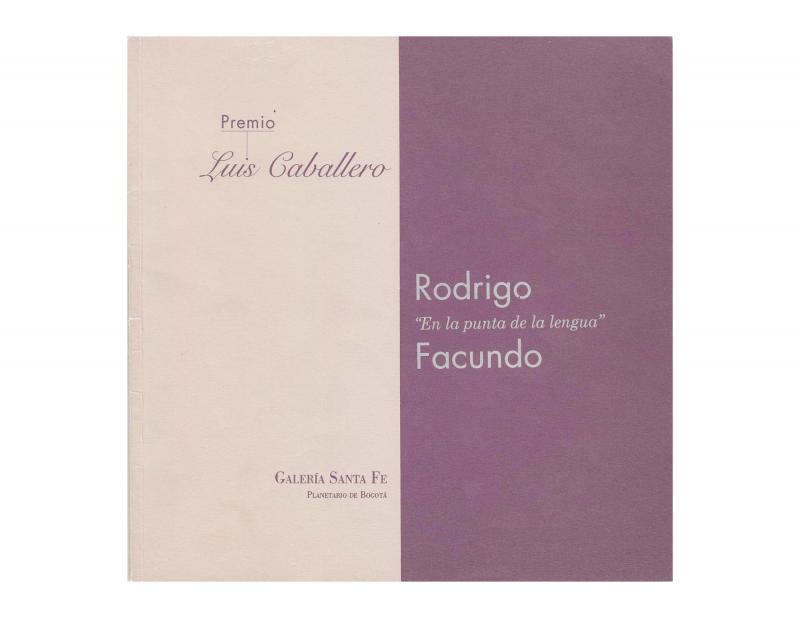This document is revealing because it helps to clarify the formal, conceptual, and contextual concerns expressed in the work of the Colombian artist Rodrigo Facundo (b. 1958) as seen from the standpoint of his perennial interest in the idea of “creating the country’s historical collective memory”—at both a social and a political level—mainly through the use of photography. The front and back covers of the brochure are illustrated with two of Facundo’s photographs of the handcarts used by vendors in the city’s informal economy to sell food and sundry household goods; Facundo describes these carts as war machinery. María A. Iovino (b. 1961) interprets these images as a reference to particular urban activities that are totally alien to social and governmental portrayals of city life. The photographs therefore identify primary survival tactics of a nomadic way of life. This exposé—understood as a condemnation of modernism’s reticular, orderly plans—expresses its critique by recognizing the other that perverts and threatens “the model,” revealing an alternative relationship with the city that challenges the idea of coexistence and the possibility of living in a civilized manner.
Iovino’s curatorial approach to the exhibition of Facundo’s photographs was therefore inspired by the title of the show, Carros de guerra [War Carts], which in turn, referred to the anthropological name given to the objects used by nomadic warriors to carry what they needed to create or assemble weapons for hunting or the possible conflicts they and their tribe might encounter on their daily migrations. Iovino’s perspective is complemented by the photos of the “war carts” in the brochure, which allow the reader to understand the social context in which they were used. It is important to note how Carros de guerra adds to the pool of anonymous group activities that contribute to a historical collective memory. This is actually the main subject of Facundo’s work, as can be seen in other examples such as En la punta de la lengua [On the Tip of My Tongue] (1997) [see doc. no. 1133948].
The Colombian curator María A. Iovino Moscarella’s recent projects include: Video Box (2009); Volverse aire [Becoming Air] (2003), a retrospective exhibition of work by Óscar Muñoz (b. 1951) held at the Museo de Arte Moderno in Bogotá; and Color que soy [Color That I Am] (2002), an exhibition of work by another Colombian artist, Delcy Morelos (b. 1967) at the Universidad Nacional Art Museum. Iovino is currently freelancing on several curatorial projects in Latin America. Locally, she took part in “Arte-Cámara,” a project sponsored by the Bogotá Chamber of Commerce for Artbo (the Art Fair in Bogotá).

